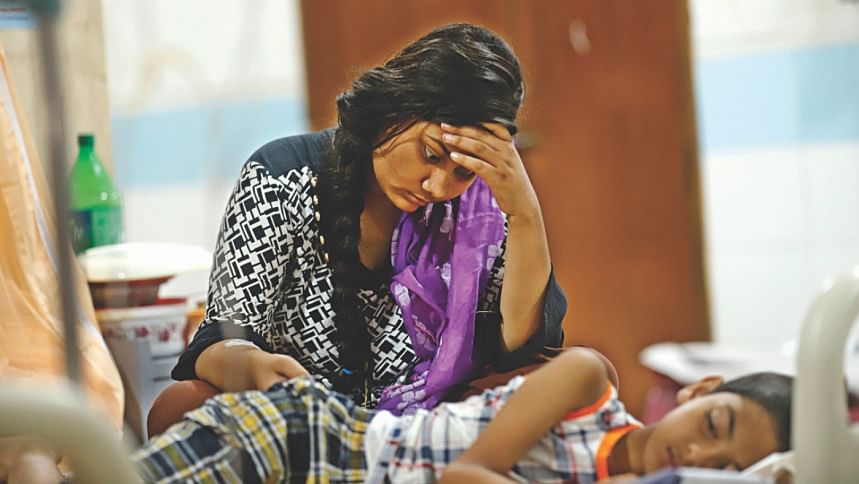Why is dengue deadlier this year?

When there were more than one lakh reported cases of the dengue virus in the country in 2019, the death toll was 179, but this year 216 people have died so far from dengue even though cases are around half compared to three years ago.
Why is the mosquito-borne disease deadlier this year?
Experts say multiple exposures to dengue, late admission in hospitals and late diagnosis of the disease are the main reasons for increasing dengue deaths.
A recent analysis of patient data by the DGHS has revealed that the dengue infection rate is the highest among people aged over 20 while the death rate is high among patients aged between 40 and 80 years.
It also showed that most dengue patients who died at hospitals breathed their last within three days of being admitted to hospitals.
There are four distinct serotypes of the dengue virus: DENV-1, DENV-2, DENV-3 and DENV-4.
For the first time, researchers this year detected the presence of DENV-4 -- an indication that DENV-1, DENV-3 and DENV-4 are now active in Bangladesh, said Tahmina Shirin, director of the Institute of Epidemiology, Disease Control and Research recently.
Entomologists said multiple serotypes not only caused the rise in dengue cases but also turned the patients' conditions severe.
HM Nazmul Ahsan, associate prof at Shaheed Suhrawardy Medical College, said the risk of fatalities increases if an individual previously infected with one serotype gets infected with another serotype.
He said the patients who are coming to the facility have mostly faced multiple exposures. It means they were infected by another variant of dengue earlier.
"Early detection of the infection and immediate hospitalisation can significantly lower the risk. Late admission is another reason for the rising number of deaths this year," Nazmul said.
"Many hospitals or clinics, especially private ones, do not follow guidelines on fluid management, '' he said, adding that this is one of the reasons for the increasing number of deaths.
To avoid death, IEDCR Director Tahmina Shirin, suggested taking sufficient fluids in any form like oral saline, fruit juice and coconut water.
"A patient will take fluids during fever and also continue it even after the fever goes away as there will be the chance of deterioration after fever ends," she added.
The patients need to be hospitalised when they feel like vomiting, pain in the stomach, breathing issues or bleed from any part of the body, she advised.

 For all latest news, follow The Daily Star's Google News channel.
For all latest news, follow The Daily Star's Google News channel. 








Comments